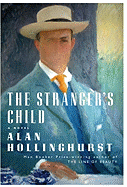
There's an exhilarating sense of truthfulness watching Alan Hollinghurst's characters interact and grow old in his new masterpiece, The Stranger's Child. With a serpentine, multi-branching plot spanning almost 100 years, the reader watches children change into doddering elder folk, opinions reverse and morph, reputations rise and grand houses fall. Along the way, Hollinghurst teases and fools the reader, playing with the traditions of the classic British novel, all in his trademark gorgeous prose.
The tale begins with 16-year-old Daphne Sawle becoming infatuated with Cecil Valance, a wealthy young poet who at Cambridge has become the friend of her older brother. Cecil is visiting the Sawle home, Two Acres, where he will write his most famous poem. Then the First World War erupts, wrecking lives and scattering the characters, and their secrets become the mysteries that perplex their biographers years later.
With a cast ranging from servants to baronets, piano teachers to bankers, the story moves forward for the most part through social events--a guest at the family home; a party honoring Cecil Valance; Daphne's 70th birthday. Suspense lurks just beneath the surface of this glossy, privileged world of rigorous conventions and repressed passion, and can break out on a pretext as thin as the children's piano-and-dance performance being stopped by their angry father, a scene that explodes with emotional violence.
Some dozen years pass between Part One and Part Two. Part Three begins in 1967 in a bank at closing time. With each new part, the reader, like a time traveler, is catapulted forward and dropped down without ceremony into the story a number of years hence, trying to figure out what has happened to the characters left behind. Puzzling it all out makes for gratifying literary sport, filled with cunning surprises.
The Stranger's Child is the most challenging, perceptive, labyrinthine, hugely satisfying fiction entertainment since--well, since Hollinghurst's The Line of Beauty, which won the 2004 Booker Prize. Hollinghurst serves up one great big banquet of a book, with plenty of the cruelty and sting of the real world, the irrationality of lust, the fickleness of fame, unanticipated deaths--and unexpected, priceless moments of compassion and grace. --Nick DiMartino, Nick's Picks, University Book Store, Seattle

